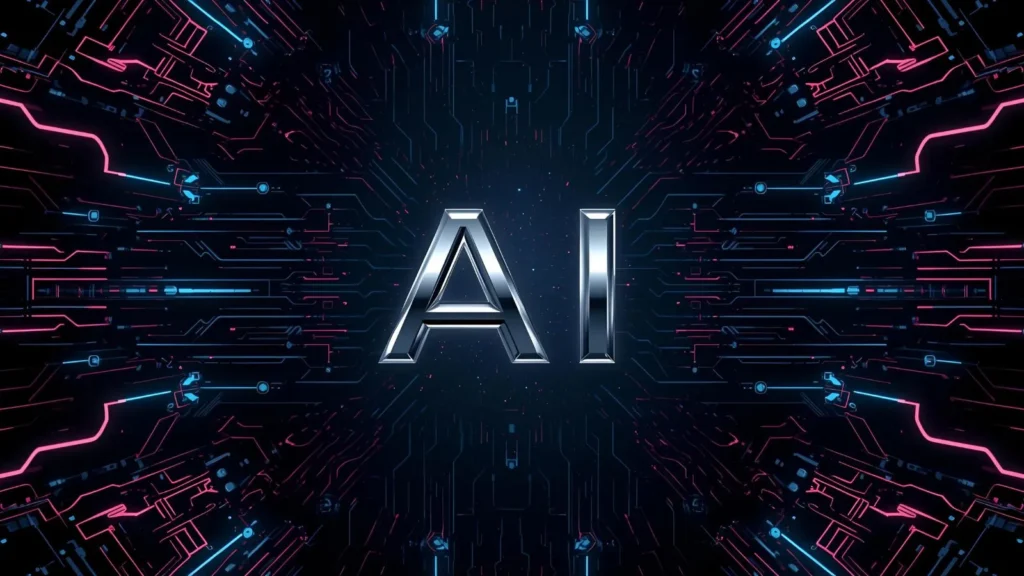Artificial Intelligence (AI) is no longer just a buzzword—it’s shaping the way we live, work, and interact. From voice assistants like Siri and Alexa to self-driving cars and workplace automation, AI is everywhere. But one of the biggest questions people ask is: What will jobs look like in the future with AI?
Will robots replace us? Will there be new opportunities? Or will we all have to change careers? In this blog, I’ll explain the future of jobs with AI in a clear, user-friendly, and powerful way—so you’ll know exactly what to expect and how to prepare.
Why AI is a Game-Changer for Jobs
AI isn’t just another technology—it’s a transformative force. Unlike machines from the past that replaced only physical labor, AI can now handle tasks involving decision-making, writing, designing, and even customer service. That’s why it has such a big impact on the future of work.
Here’s why it matters:
- Automation of Repetitive Tasks: AI can take care of boring, repetitive work.
- Productivity Boost: Workers can do more in less time with AI help.
- New Skills and Jobs: While some jobs will disappear, new ones will be created.
- Global Impact: AI is changing industries worldwide, not just in one country.
Jobs That AI Will Transform (and Maybe Replace)
AI will definitely affect some careers more than others. Here are examples:
1. Customer Support
AI-powered chatbots already handle basic customer questions. This means fewer human agents for simple tasks, but more opportunities for people to work in advanced customer relationship roles.
2. Transportation
Self-driving cars and trucks are becoming a reality. This could reduce the demand for drivers but create new jobs in AI system monitoring, safety, and maintenance.
3. Manufacturing
Robots powered by AI can handle production lines. Humans will move into supervisory and technical roles rather than manual labor.
4. Retail
Cashiers may decline as AI-powered self-checkouts and online shopping rise. But new jobs will open in e-commerce, logistics, and customer experience design.
5. Data Entry and Admin Work
AI can handle scheduling, document processing, and data management. Administrative assistants will shift toward project management and human-focused roles.
Jobs That Will Grow Because of AI
While some jobs may shrink, others will grow rapidly. AI isn’t just about replacing jobs—it’s about creating new opportunities.
1. AI Specialists and Developers
As AI grows, companies need more engineers, coders, and data scientists to build and manage AI systems.
2. Healthcare Professionals
AI helps doctors with diagnosis, treatment planning, and research, but human doctors and nurses will still be essential for care and empathy.
3. Cybersecurity Experts
With more AI comes more risks. Cybersecurity jobs will boom to keep systems and data safe.
4. Creative Roles
AI can generate music, writing, and art, but human creativity and storytelling will remain valuable. Writers, designers, and marketers who use AI as a tool will thrive.
5. AI Trainers and Ethics Specialists
AI needs humans to train it and ensure it’s used responsibly. Jobs in AI ethics, compliance, and regulation will expand.
Skills You’ll Need for the Future with AI
If you want to stay ahead, you need to adapt your skills. Here are the top ones:
- Tech Skills: Learn coding, data analysis, or AI basics.
- Creativity: AI can’t replace imagination and storytelling.
- Problem-Solving: Employers will value people who can think critically.
- Emotional Intelligence: Human empathy, leadership, and communication will always matter.
- Lifelong Learning: Be ready to keep learning new tools and technologies.
A Day in the Future Workplace with AI
Let’s imagine a typical day at work in 2035:
- You start your day by checking your AI assistant, which summarizes all your emails and schedules.
- At work, you collaborate with AI-powered software that helps you brainstorm, design, and test new ideas.
- Robots and AI systems handle repetitive tasks, freeing you to focus on strategy and creative problem-solving.
- During meetings, AI tools transcribe notes and suggest action items automatically.
- After work, AI recommends personalized courses to help you upgrade your skills for tomorrow’s challenges.
In this world, humans aren’t replaced—they’re empowered.
Challenges We Must Face
AI also comes with challenges that we need to prepare for:
- Job Displacement: Some industries will lose jobs faster than new ones are created.
- Skill Gaps: Workers need training to keep up with new technology.
- Ethics and Fairness: AI must be used responsibly to avoid bias and inequality.
- Privacy Issues: AI collects data, so protecting personal information is critical.
How to Prepare for the Future of Jobs with AI
Here are some steps you can take today:
- Learn Basic AI Tools: Start using AI assistants, writing tools, or productivity apps.
- Upskill Regularly: Take online courses in data, tech, or business.
- Focus on Human Strengths: Work on creativity, empathy, and leadership.
- Stay Flexible: Be open to career shifts as industries evolve.
- Network: Surround yourself with people who embrace technology and growth.
Final Thoughts
The future of jobs with AI isn’t about robots taking over—it’s about transformation. Yes, some jobs will disappear, but many more will be created. The key is to adapt, learn, and embrace AI as a partner, not an enemy.
Think of AI as a powerful tool, like electricity or the internet—it’s here to make life easier and work more productive. If you stay flexible and keep learning, the future of jobs with AI will bring exciting opportunities.


